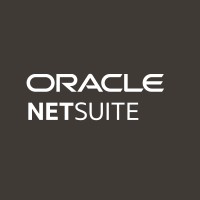Best Finance Software
What is Finance Software?
Finance software provides businesses and individuals with the essential tools to manage, track, and optimize their financial activities. These platforms offer a wide range of functionalities, including budgeting, accounting, invoicing, and financial reporting. Designed to simplify complex financial tasks, finance software ensures accuracy and compliance while saving time and effort. It often integrates with other business systems to provide real-time insights into cash flow, expenses, and profits, helping users make informed decisions. With features like expense tracking, tax calculation, and financial forecasting, finance software is vital for both small businesses and large enterprises aiming to maintain financial health and growth.
33 Listings in Finance Software
More About Finance Software
Finance software has become an essential tool for individuals and businesses to manage their financial tasks efficiently and effectively. With the increasing complexity of financial management and the growing reliance on digital solutions, finance software offers a comprehensive suite of tools that simplify accounting, budgeting, financial reporting, and compliance. These platforms are designed to streamline financial operations, improve accuracy, and provide real-time insights that help users make informed financial decisions. Whether for personal use, small businesses, or large corporations, finance software plays a crucial role in optimizing financial workflows and ensuring financial stability.
At the heart of most finance software platforms is accounting functionality. This feature allows users to track income and expenses, create balance sheets, and maintain financial records. Accounting software eliminates the need for manual bookkeeping and helps users maintain accurate financial records, which are critical for tax filings, audits, and financial decision-making. By automating accounting processes, finance software reduces human error, ensuring that financial data is always up to date and reliable. Many platforms also support integration with bank accounts, credit cards, and other financial institutions, automatically importing transactions to ensure accurate financial tracking without requiring manual entry.
Budgeting is another key feature of finance software. These tools help businesses and individuals set and track budgets, monitor cash flow, and manage expenses more effectively. Budgeting software allows users to create detailed financial plans, allocate resources to specific categories, and track progress against budgeted amounts in real time. This functionality is especially valuable for businesses, as it enables them to identify potential overspending, prioritize spending, and make adjustments to stay within budget. For individuals, budgeting software helps track personal spending, save for goals, and avoid debt. The ability to set up alerts and notifications ensures that users stay on track and are informed of any budgetary discrepancies.
Invoicing and billing are also important components of finance software, particularly for businesses that provide products or services. These tools simplify the process of generating invoices, sending them to clients, and tracking payment status. With finance software, businesses can create professional-looking invoices that include the necessary details, such as service descriptions, payment terms, and taxes. Automation tools allow businesses to set recurring invoices for subscriptions or regular services, reducing the manual effort involved in billing. The software also tracks outstanding invoices and sends reminders to customers, helping businesses maintain a steady cash flow and reduce the risk of late payments.
Financial reporting is another critical aspect of finance software. These tools generate comprehensive reports that provide insights into a business’s financial health. Finance software can create various types of reports, including profit and loss statements, balance sheets, cash flow statements, and income statements. These reports are essential for analyzing financial performance, identifying trends, and making strategic decisions. With real-time data, business owners and financial managers can assess profitability, track expenses, and monitor financial goals. Customizable reporting features allow users to create reports based on specific criteria, such as time periods, departments, or projects, providing a deeper level of insight into financial data.
Tax management is a feature that is often integrated into finance software, making it easier for businesses and individuals to manage their tax obligations. The software can automatically calculate taxes based on applicable tax laws, including sales tax, VAT, and income tax. It can also generate tax reports, ensuring that users remain compliant with local, state, and federal tax regulations. By automating the tax calculation process, finance software reduces the likelihood of errors and ensures timely tax filings. This feature is especially valuable for businesses with complex tax requirements or those operating in multiple regions, as it simplifies the process of calculating and filing taxes in different jurisdictions.
Cash flow management is another essential function of finance software, particularly for small businesses and freelancers. This feature helps users track their incoming and outgoing cash flow, ensuring that they have sufficient funds to cover expenses. By providing real-time visibility into cash flow, finance software allows businesses to make proactive financial decisions, such as postponing or accelerating payments, to maintain a healthy cash balance. Additionally, cash flow forecasting tools predict future cash flow based on historical data, helping businesses plan for upcoming expenses and avoid cash shortages.
For businesses that require more advanced financial management, finance software often includes features for managing multiple accounts, currencies, and financial entities. This functionality is particularly useful for businesses that operate internationally or deal with complex financial structures. Finance software can handle multi-currency transactions, allowing businesses to track expenses and revenues in different currencies and automatically convert them into the business’s base currency. Multi-entity management allows businesses to track the financial performance of different departments, subsidiaries, or branches, consolidating financial data into a single view. These advanced features provide businesses with a comprehensive understanding of their financial operations across different regions and entities.
Integration capabilities are an important consideration when selecting finance software. Many platforms offer integration with other business tools and software systems, such as customer relationship management (CRM) systems, enterprise resource planning (ERP) software, and payment gateways. This integration ensures that financial data flows seamlessly between different systems, reducing the need for manual data entry and improving overall operational efficiency. For example, integrating finance software with a CRM system allows businesses to automatically generate invoices based on sales data, while integrating with payment gateways enables automated payment processing. Integration with payroll software also ensures that employee salaries, benefits, and taxes are accurately tracked and paid.
Security is a paramount concern when it comes to finance software, as users need to trust that their financial data is protected. Most finance software platforms employ advanced security measures, such as encryption, two-factor authentication, and data backups, to protect sensitive financial information. These security features ensure that data is safe from unauthorized access, fraud, and cyberattacks. Additionally, many platforms offer user access controls, allowing businesses to define different roles and permissions for employees, ensuring that only authorized individuals can access specific financial data.
Cloud-based finance software has gained significant popularity in recent years due to its accessibility, scalability, and cost-effectiveness. Cloud-based platforms allow users to access their financial data from anywhere with an internet connection, making it easier for businesses to manage their finances on the go. These platforms also offer automatic software updates, ensuring that users always have access to the latest features and security patches. Cloud-based finance software also provides scalability, allowing businesses to easily upgrade their plan as they grow and require more advanced features.
Mobile accessibility is another feature that is increasingly important for users of finance software. Many finance software platforms offer mobile apps that allow users to manage their finances from their smartphones or tablets. This feature is particularly useful for business owners who need to monitor their financials while traveling or working remotely. Mobile apps typically include features such as invoice creation, expense tracking, and financial reporting, giving users the flexibility to manage their finances from anywhere.
For individuals, finance software often includes personal finance management tools, such as budget tracking, debt management, and investment tracking. Personal finance software helps users keep track of their spending, create savings goals, and monitor their credit scores. These tools provide a comprehensive view of an individual’s financial health, allowing them to make better financial decisions and plan for their future.
Finance software also plays a critical role in financial forecasting and planning. By analyzing historical data and using predictive algorithms, these platforms can generate forecasts for future revenues, expenses, and cash flow. This functionality helps businesses plan for growth, allocate resources effectively, and set realistic financial goals. Forecasting tools can also help businesses identify potential financial risks and take proactive measures to mitigate them.
As the financial landscape continues to evolve, finance software is incorporating emerging technologies to further enhance its capabilities. Artificial intelligence (AI) and machine learning are being used to automate financial processes, such as expense categorization, invoice processing, and fraud detection. These technologies improve the accuracy and efficiency of financial management, while reducing the time and effort required to complete manual tasks. Blockchain technology is also being explored for its potential to provide secure, transparent, and decentralized financial transactions.
In conclusion, finance software is an indispensable tool for managing financial tasks, whether for individuals, small businesses, or large corporations. It provides a wide range of features, from accounting and budgeting to tax management and financial reporting, all of which help users manage their finances with greater efficiency and accuracy. With advanced features like cash flow management, multi-currency support, and integration with other business tools, finance software is essential for businesses looking to streamline their financial operations and make informed decisions. As technology continues to evolve, finance software will continue to play a critical role in shaping the future of financial management, offering even more powerful tools and capabilities to meet the needs of today’s dynamic financial landscape.
Finance Software News and Updates
- Latest Trends and Innovations in Risk Management Software The risk management software industry is constantly evolving with new trends and innovations to help businesses effectively identify, assess, and mitigate risks. One major trend we have observed is th..
- The Future of Financial Planning Software: Trends and Innovations In today's rapidly evolving financial landscape, the demand for efficient and innovative financial planning software is higher than ever. Financial advisors and firms are constantly seeking tools to s..
- Investment Management Software: The Latest Trends and Innovations In the fast-paced world of investment management, staying up-to-date with the latest technology and trends is crucial for success. The investment management software industry has seen significant adva..
- Breaking News: Payment Processing Software Industry Evolution The Payment Processing software industry continues to evolve rapidly, with new innovations and features being introduced to meet the changing needs of businesses and consumers. In recent market insigh..
- Financial Analytics Software Update: Harnessing the Power of Data for Smart Decision-Making As businesses continue to navigate through uncertain economic times, the need for accurate and real-time financial insights has never been greater. In the world of financial analytics software, compan..
- The Evolving Landscape of Tax Software: Trends and Innovations in 2022 As we delve further into 2022, the realm of tax software continues to evolve, adapting to meet the changing needs of businesses and individuals alike. A key trend this year is the rise of cloud-based ..
- New Trends and Innovations in Billing & Invoicing Software As businesses navigate the evolving landscape of digital transactions and financial management, Billing & Invoicing software continues to play a crucial role in streamlining processes and enhancing ef..
- The Evolution of Budgeting Tools: What's New in 2022 In 2022, the world of budgeting tools software continues to evolve rapidly, with new trends and innovations shaping the industry. One major trend that has emerged is the integration of artificial inte..
- Expense Management Software: Latest Trends and Updates Expense management software has become an essential tool for businesses of all sizes to effectively track and manage their expenses. With the rise of remote work and the increasing need for real-time ..
- Accounting Software Industry Update: New Trends and Innovations The Accounting Software industry is always evolving with new trends and innovations to meet the needs of businesses. In recent updates, cloud-based accounting solutions have gained popularity due to t..
- Navigating Risk Management Software: Latest Trends and Innovations In the rapidly evolving landscape of risk management software, staying ahead of the curve is crucial for businesses looking to mitigate potential threats and safeguard their operations. The latest tre..
- Breaking News: Financial Planning Software Industry Updates The Financial Planning software industry is undergoing significant changes and advancements, with several key players introducing new features and improvements to their platforms. One notable trend is..
- Exciting Developments in Investment Management Software In the ever-evolving world of financial technology, Investment Management software plays a crucial role in helping businesses make informed decisions about their investments. The latest developments i..
- The Latest in Payment Processing Software: Innovations and Trends As the demand for online payment solutions continues to rise, payment processing software providers are constantly innovating to meet the needs of businesses and consumers. The latest trends in this i..
- Latest Innovations in Financial Analytics Software Financial Analytics software has always been a critical tool for businesses looking to gain insights into their financial performance and make informed decisions. In recent months, there have been sev..
- Tax Software Industry Evolving with New Features and Innovations The tax software industry is constantly evolving with new features and innovations to help businesses and individuals manage their tax obligations more efficiently. One of the key trends in the indust..
- Breaking News: Billing & Invoicing Software Industry Update In the ever-evolving world of Billing & Invoicing software, staying up-to-date with the latest trends and innovations is crucial for businesses looking to streamline their financial processes. From AI..
- The Evolution of Budgeting Tools: Improving Financial Management for Individuals and Businesses As we dive deeper into the digital age, financial management tools have become an essential part of both individual and business operations. Budgeting tools software has evolved significantly over the..
- The Future of Expense Management Software: Trends and Innovations As businesses and employees adapt to remote work environments, the demand for efficient expense management solutions has never been higher. Expense management software providers have been quick to res..
- The Evolution of Accounting Software: Trends, Innovations, and Updates The accounting software industry is constantly evolving with new technologies, trends, and innovations. In recent developments, cloud-based accounting software has become increasingly popular due to i..
Finance Software Categories
- Accounting Software Accounting Software is a vital tool for businesses and individuals to manage their financial records..
- Expense Management Expense Management tools are designed to help businesses and individuals track, manage, and control ..
- Budgeting Tools Budgeting Tools are platforms that help businesses and individuals create, manage, and track budgets..
- Billing & Invoicing Billing & Invoicing software helps businesses automate the process of creating and managing invoices..
- Tax Software Tax Software helps businesses and individuals calculate, file, and manage their taxes. These platfor..
- Financial Analytics Financial Analytics tools help businesses and individuals analyze their financial data to gain insig..
- Payment Processing Payment Processing software is essential for businesses to securely process online payments and hand..
- Investment Management Investment Management software helps businesses and individuals manage their investments and portfol..
- Financial Planning Financial Planning software helps businesses and individuals create and manage their financial plans..
- Risk Management Risk Management software is designed to help businesses and individuals identify, assess, and manage..







.png)






.png)
.png)
.png)
.png)
.png)
.png)
.png)
.png)
.png)
.png)
.png)

.png)

.png)